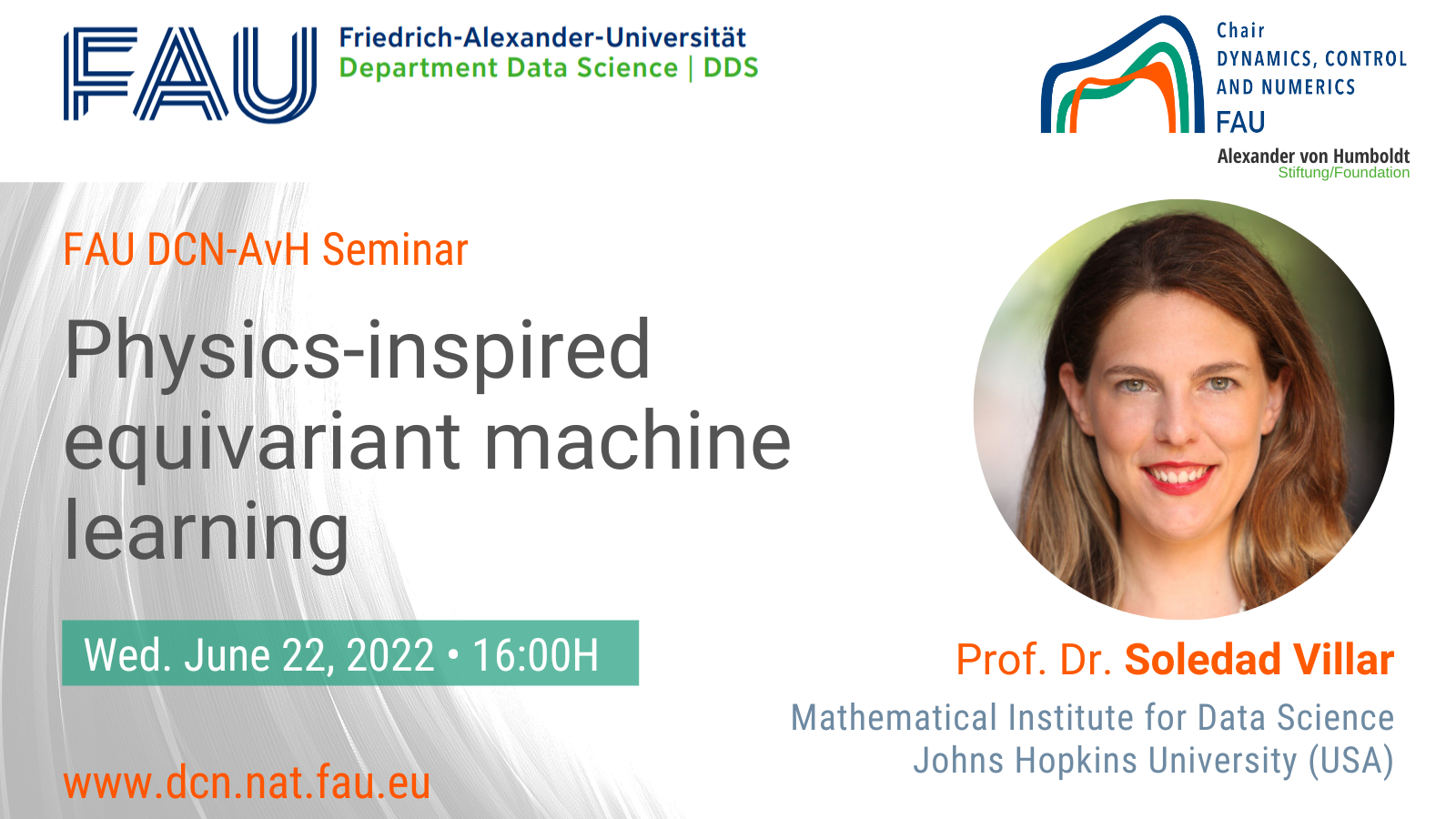
Physics-inspired equivariant machine learning
Speaker: Prof. Dr. Soledad Villar
Affiliation: Mathematical Institute for Data Science at Johns Hopkins University (USA)
Organized by: FAU DCN-AvH, Chair for Dynamics, Control and Numerics – Alexander von Humboldt Professorship at FAU Erlangen-Nürnberg (Germany)
Zoom meeting link
Meeting ID: 530 867 8850 | PIN: 014 005
Abstract. There has been enormous progress in the last few years in designing neural networks that respect the fundamental symmetries and coordinate freedoms of physical law. Some of these frameworks make use of irreducible representations, some make use of high-order tensor objects, and some apply symmetry-enforcing constraints. Different physical laws obey different combinations of fundamental symmetries, but a large fraction (possibly all) of classical physics is equivariant to translation, rotation, reflection (parity), boost (relativity), units scalings, and permutations. Here we show that it is simple to parameterize universally approximating polynomial functions that are equivariant under these symmetries, or under the Euclidean, Lorentz, and Poincaré groups, at any dimensionality d. The key observation is that nonlinear O(d)-equivariant (and related-group-equivariant) functions can be universally expressed in terms of a lightweight collection of (dimensionless) scalars — scalar products and scalar contractions of the scalar, vector, and tensor inputs. We complement our theory with numerical examples that show that the scalar-based method is simple, efficient, and scalable.
(Photo credits: JHU)
